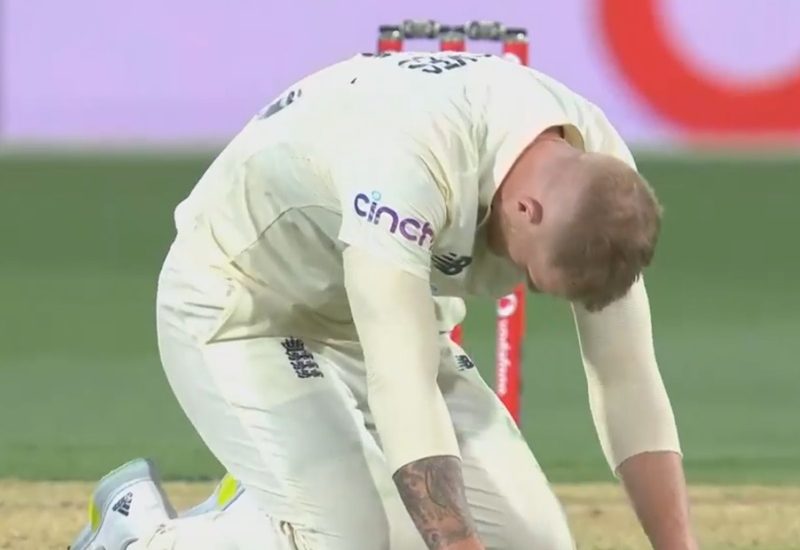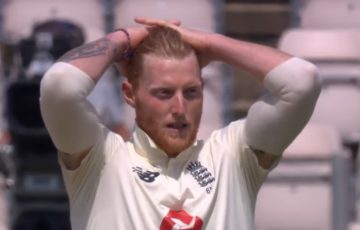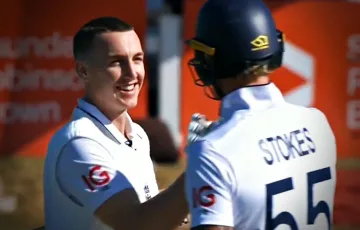‘Managing’ means two things. It means taking decisions and directing matters so that everything hopefully progresses more smoothly. It also means bumbling through in the face of various problems in the vague hope you’ll just get through it all somehow. Tired of the second approach, Ben Stokes has switched to the first one.
“How are you coping?”
“Oh, you know, we’ll manage.”
As soon as he was named Test captain, everyone wondered how thinly Ben Stokes would be spread across the white ball formats. ‘Too thinly’ he’s concluded and so he’s binned off the 50-overs one.
This wasn’t inevitable exactly, but it was at least hugely predictable and also completely the right thing to do if he harbours any hopes of doing a decent job in the other formats. In fact he may yet find that two formats is still too many.
Stokes’ decision is another reminder of why fixture bloat is so objectionable. It’s the star names who are most likely to end up blunted or absent (or retired).
In the early 2000s, England would typically play around 30 to 35 international matches a year. Since 2007, they’ve generally played around 40 to 45.
All-format players can’t get into top mental and physical form for that many games. Even if they appear to be coping for a year or two, they inevitably burn out. Usually one format or another will start to get away from a struggling player. The cricket world tends to assume this is because they just weren’t suited to that one, but it’s rarely true.
If you’re trying to enjoy a triple format career as both a batter and a bowler, you’re in even bigger trouble. That’s an absolutely insane task even before you throw in a Test captaincy.
Change to the fixture lists won’t be driven by administrators, of course. As far as they’re concerned, a dozen international fixtures compromised by fatigue are more profitable than six played at full throttle. The equation’s a simple one for them, which means it’s down to people like Stokes to manage the situation.
And this is how they do it.
So where does that leave us? As fans, it’s down to us to weigh these elements and decide for ourselves which matches are truly worth our attention.
The status and appeal of England’s 50-over cricket has just been significantly diminished.
Further reading: Separate teams? What might a world of cricket format specialists actually look like?
Do you like this website? Is there space in your inbox for roughly three more cricket-related emails a week? Then why not sign up for our email?





Maybe Stokes’ decision will Make Things Happen with regard to the future scheduling of internationals?
The Indian (part 2 of a) tour started 4 days after the end of a Test v New Zealand, and there’s a mere 40-odd hours between the end of the India ODIs and the start of the South Africa ODIs. Even if we weren’t coming off the back of the circumstances of the last couple of years, it all feels a bit too much.
International cricket shouldn’t be like mid-season baseball, where there are so many games that almost no individual game during most of the year is of any consequence. It should be more like international rugby or the NFL, where every game is by definition A Big Deal.
Perhaps controversial, but I think I’d scrap bilateral 50-over series after next year’s World Cup.
I’d scrap all ODIs including the World Cup. Make T20 World Cup once in 4 years and let all other T20 be franchise leagues following the soccer (football) model.
And a Test Championship once in 4 years.
That way, franchise t20 leagues and bilateral tests would be the staple of cricket with two championships every 2 years the big event.
I seem to recall Trevor Bayliss once saying T20 should not be played internationally.
Ravi Shastri too. Everyone has their preference. No single person has the clout to redirect the ship in any meaningful way.
If more high profile players agree with Stokes that 50-over is the least important and also sack it off, it might unravel. But different players have different abilities and others are just as likely to cut Tests or T20s from their schedule, in which the whole thing rolls on with everything fractionally diminished.
I think it highly likely the economics will eventually determine what gets cut. Given there are lot of things that are hard to objectively measure e.g. how do you get new fans, it will be more size of stadium audience and media contracts that’ll have the last say.
And I’m afraid tests will be the first ones to get the boot, if and when we come around to that.
Someone should write a five-part dystopian short story about that for Cricinfo.
I have a long-standing ‘gentlemen’s wager’ that Tests will outlive 50-over ODIs, I still feel pretty confident in that, at least in the men’s game.
But that’s mainly based on the continuing interest in Tests from fans in England and Australia in particular. If the balance of power/wealth shifts within the ICC (eg if some ‘new’ nations develop large cricketing audiences and ‘media markets’, perhaps off the back of T20 being included in the Olympics or the emergence of some incredibly talented players from non-Test-playing countries) then that could change… although I think the fact that the T20 and 50-over formats (let alone the Hundred) are insufficiently differentiated from each other is probably going to lead to Tests still having a ‘special’ status.
Here’s another valid viewpoint…
https://www.bbc.com/sport/cricket/62224133
Good on Stokes and I wish him the best, but I am not at all sure it’s all that wise to cut yourself off from one format completely. Imagine someone doesn’t play ODIs and T20s and concentrates only on tests (not that it applies here) – it sure is possible he succeeds (like Pujara) but lack of practice at the highest level is a serious thing. The volume of test matches by itself might not be sufficient to guarantee that you’re in top form year round. Most teams these days land up in another country, play a cursory 4 day game against a local team (if they have that luxury) and get things started. If the last test series you played was 2 months ago against a much weaker opposition, I am not sure it’s hugely helpful. It is strange to see someone like Stokes who is a naturally gifted ODI player to relinquish the format. The English test team is in a honeymoon phase now, but once it ends, the lack of fallback options might worry Stokes. I hope I am wrong, but my guess is six months from now, ECB and Stokes will probably wake up to the fact that they made a pig’s breakfast of the entire thing.
Didn’t KP also want to retire from ODI cricket (but not T20) but wasn’t allowed to by the ECB? What’s the difference here?
Time.
Good point
So if you are Ben Stokes (I’m assuming that at most only one of you is), and you need to cut down a little, your choice is based on… what?
1. What you enjoy most (or least)
2. What pays best (or worst)
3. What you think has a future (or doesn’t)
4. What gives you a wide profile (or doesn’t)
I can’t speak for the first of these (maybe one of you can), but to me ODIs is last #2, probably last in #3. As for #4, the test captain is still someone that can be named by people who aren’t cricket fans, and T20 has developed a following all of its own. ODIs are a bit Bob Cunis – they’re too short for the test crowd and too long for the T20 crowd. They seem to rely on fans from both ends saying , “Yeh, why not, there’s nothing else on TV”. Is there such a thing as an ODI fan? Specifically, I mean, as in one that dislikes tests and T20.
The exception to this is a strange and rare thing that I will call TWCWEGTTF. This stands for The World Cup When England Get To The Final. Suddenly, ODI cricket is all that anyone cares about in the whole of England, cricket fans or not. As Stokes found out, playing in TWCWEGTTF gives you your greatest ever career moment. That he replaced it with a greatest ever career moment five weeks later doesn’t change this. Even without Headingly, by the end of 2019 Stokes would have been a household name – put there by ODI cricket.
The next opportunity for TWCWEGTTF is November 2023. Maybe Stokes has concluded that profile-widening is now unnecessary, or that the chance of TWCWEGTTF is remote. Or maybe it’s got nothing to do with this, and that he is just picking the versions he enjoys and that pay him well. No shame in that.
If the average person were given two choices, I assume the vast majority will make a decision based on two factors:
1. Which one of these am I really good at?
2. Which one gets me more money?
Admittedly Stokes isn’t the average man and doesn’t need to worry too much about #2 as either option would ensure he’ll retire wealthy. Of course, motivational gurus like Steve Jobs might urge you to “follow your passion” – if your passion is something you’re really good at, this makes sense. Otherwise it’s a rather shitty option. Thus, Stokes should have asked himself in which format would he be indispensable for England. Let’s be honest: England won the last few test matches because Bairstow decided to treat visiting teams with the love and warmth Joseph Stalin reserved for his friends. Stokes will not be missed in T20s either because pretty much no one will be missed in T20s – it’s a format where anyone in the eleven can win the game for you. Arguably the format Stokes is best at is the ODIs. I do agree that ODIs might not have much of a future except for the World Cup thing but they’re going to be around for the next decade or so at least. And it’s the one format where Stokes can be the game changer for England. This is a puzzling decision.
We’d say he’s gone for a combination of cachet and money. Tests for the former, T20s for the latter, deeming ODIs the lukewarm water in the middle.